

The Emil Racoviță Foundation thanks the Giovanni Bosco Foundation, and especially Mrs. Carmen Mertoiu, specialized educator, for the implementation of the Environmental Protection and Exploration theme and the realization of the summer activity "In the footsteps of Emil Racoviță" in Constanța, June 19 - July 14, 2023.
What does it mean to be a scientist who explores the limits of the unknown, leaves a positive mark on the world, and honors Romania wherever they are in the world?
One such man was Emil Racoviță, Antarctic explorer, oceanologist, speleologist, academic and humanitarian. He dedicated his life to knowledge gathering and the exploration of the environment in the broad context of evolution, and he left the following as a legacy -- in his own words:
I, who was nothing but a student and a teacher my whole life, would like to leave this wealth as a legacy to the boys and girls of our country.
It's not much richness, but it served me well in my life and that's why I offer it with confidence, in the following inventory:
Love for the country and the Romanian language.
Love of Science.
Complete trust in scientific methods.
Civic courage to tell the truth always and in any place.
[...]
Finally, undisturbed optimism springs from my belief that, after all, today's humanity will not be so stupid as to dig its own grave.
Following in his footsteps, it is important to create for today's youth, conditions similar to those enjoyed by Racoviță, those that nurtured his love of nature, confidence in a positive future, and the sense of value of personal contribution to the benefit of humanity.
For this purpose, the Emil Racoviță Foundation for Science and Exploration in Extreme Environments partnered with the Giovanni Bosco Foundation which is dedicated to the education and promotion of youth communities to initiate a series of educational activities. This year, they focused on students grades 1-8 to expose them to knowledge, exploration, diversity, and environmental protection, through age appropriate games and activities.
Carmen Mertoiu, a specializat educator at the Bosco Foundation, created in Racoviță's spirit, a set of stimulating and diverse activities for children. These activities spurred the children to observe carefully, to inquire with curiosity, and to create a new image of respect, willingness to understand, and protect the interconnectedness between us, the human species and all what surrounds us.

Emil Racoviță would be very proud to know that more than 120 years later, he is a model for the curious little scouts from Constanța, in front of the microscope.
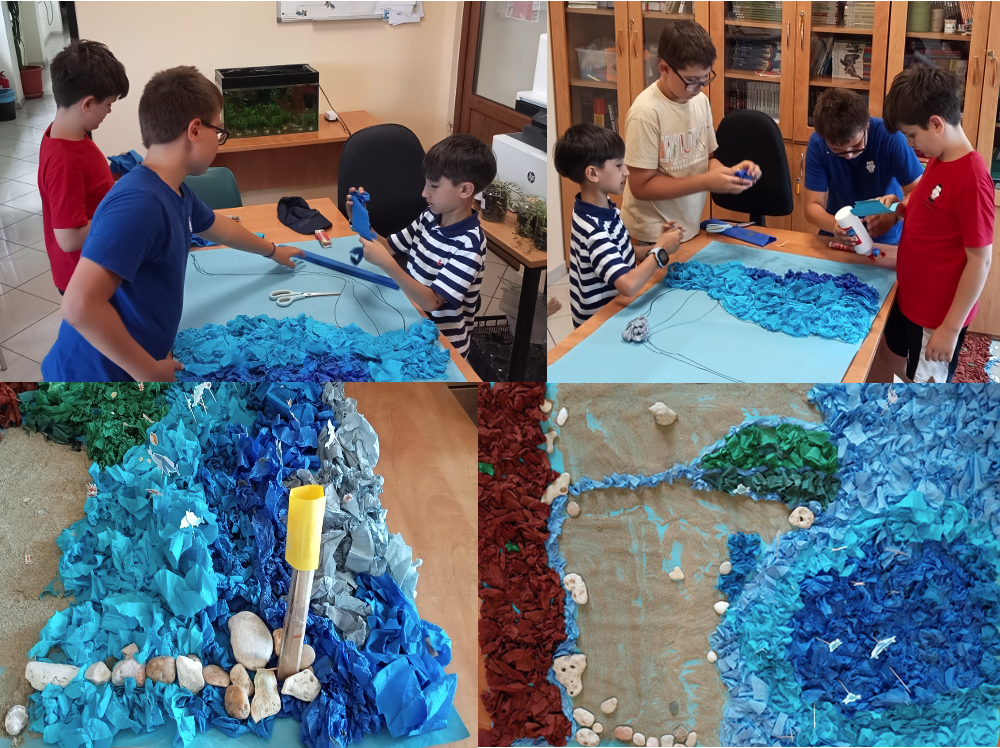
And so you don't get lost in microscopic details, it's good to know where you are going. It is helpful having a map, or knowing how to make one, as the crew of Belgica built one on their way into the unknown Antarctic continent. In teams, the children built the map of the Black Sea shore, with the arms of the Danube Delta, canals, and the depth of the seabed represented in gradients of blue.
Continuing as little zoologists, they drew whales and penguins after copies of the original drawings made by Emil Racoviță.
At the same time they learned how the sense of humor and the caricatures made by Racovița supported his shipmates to maintain morale during the cruel Antarctic night where Belgica and her crew spent an entire winter. Their expedition, the first to winter in the history of ice exploration, brought, for the whole world, invaluable data from the continent that at the time was still unknown.
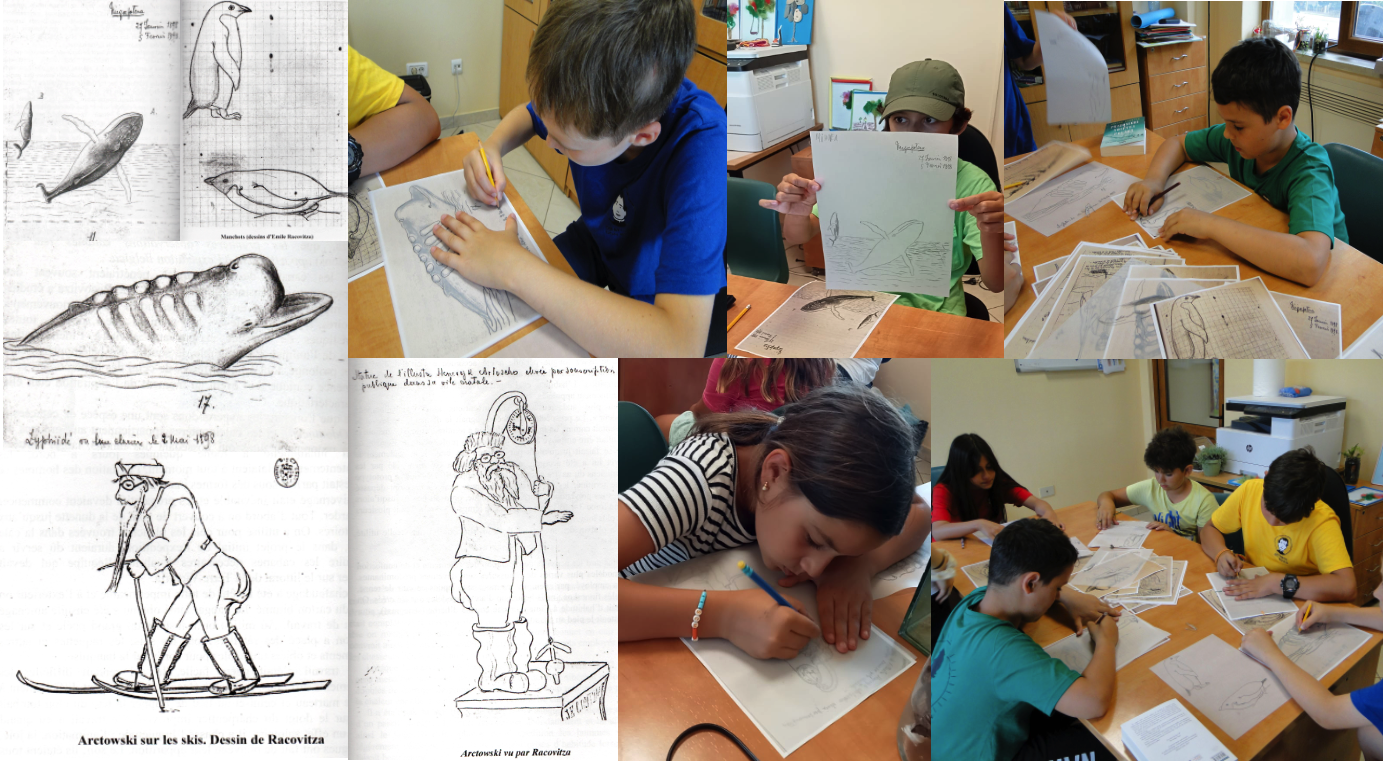
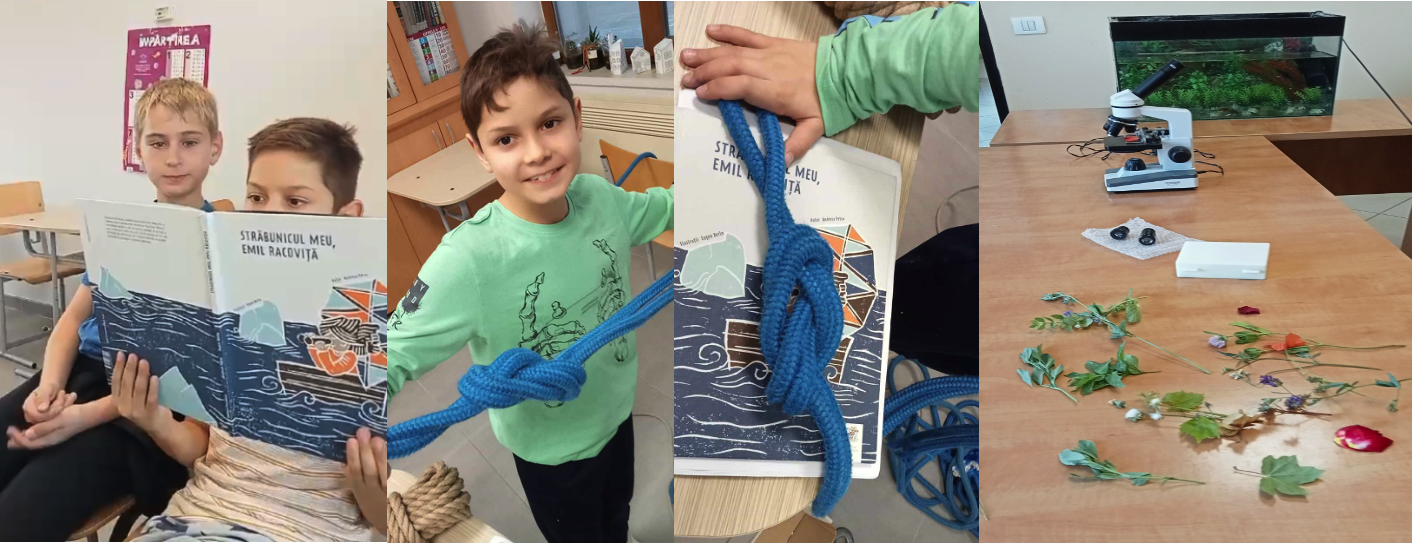
Inspired by the story of Belgica 1 a student stated: "When I grow up, I'm going to the South Pole".
To prepare for exploration, the children learned to make sailor's knots, useful in everyday activities as well, and prepared their "explorer luggage", as taught in the book "My great-grandfather, Emil Racoviță", by Andreia Petcu.
Should from this seed planted with great care by Mrs. Carmen Mertoiu raise a new explorer, it remains to be seen. The seed has been sown and will have to be further tended in the mind and children's environment.
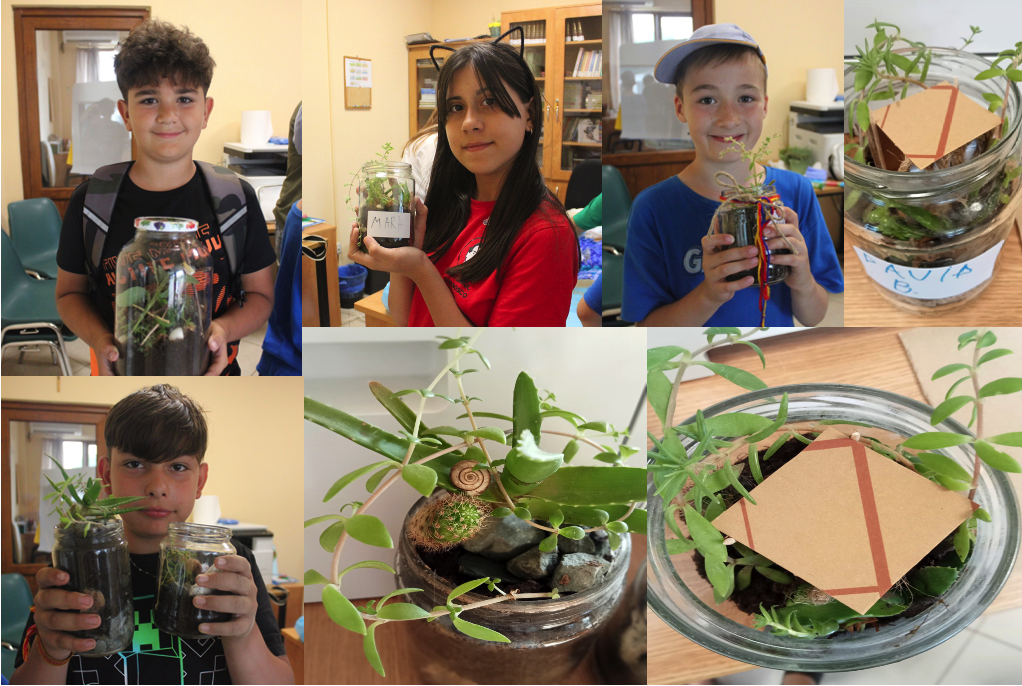
Of course, the environment can be replicated on a small scale, and so the children learned to build and oxygenate an aquarium, and built their own original terrariums, each demonstrating the creative spirit present in every child.

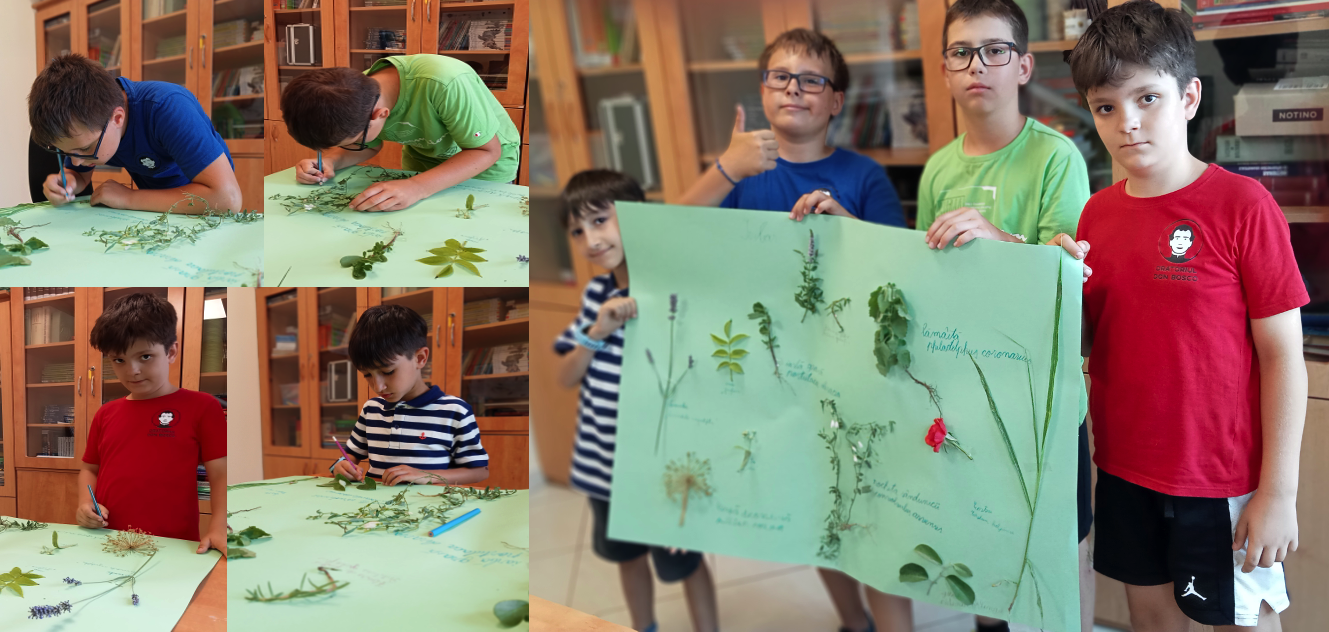
The classic herbarium with plants from the school yard taught the students the popular and scientific names of common day plants per day. We tend to easily forget that these plants have remarkable properties and play an important role in the ecology of the environment and own our health.
In the spirit of Racoviță and Eminescu, a child confessed: "I like everything that moves".
The Racovița Foundation develops projects that value, protect and take care of "tot ce mișcă-n țara asta" (everything that moves in the realm), and to repay with love and respect "râul și ramul" (the river and the branch) which they have been our friends and have protected and generously fed us for centuries. It is our turn to protect them, for the generations that come after us.
What is ecology and environmental protection, and where do we start? Encouraged by the teacher to build a tree according to their own ideas, a child asked:
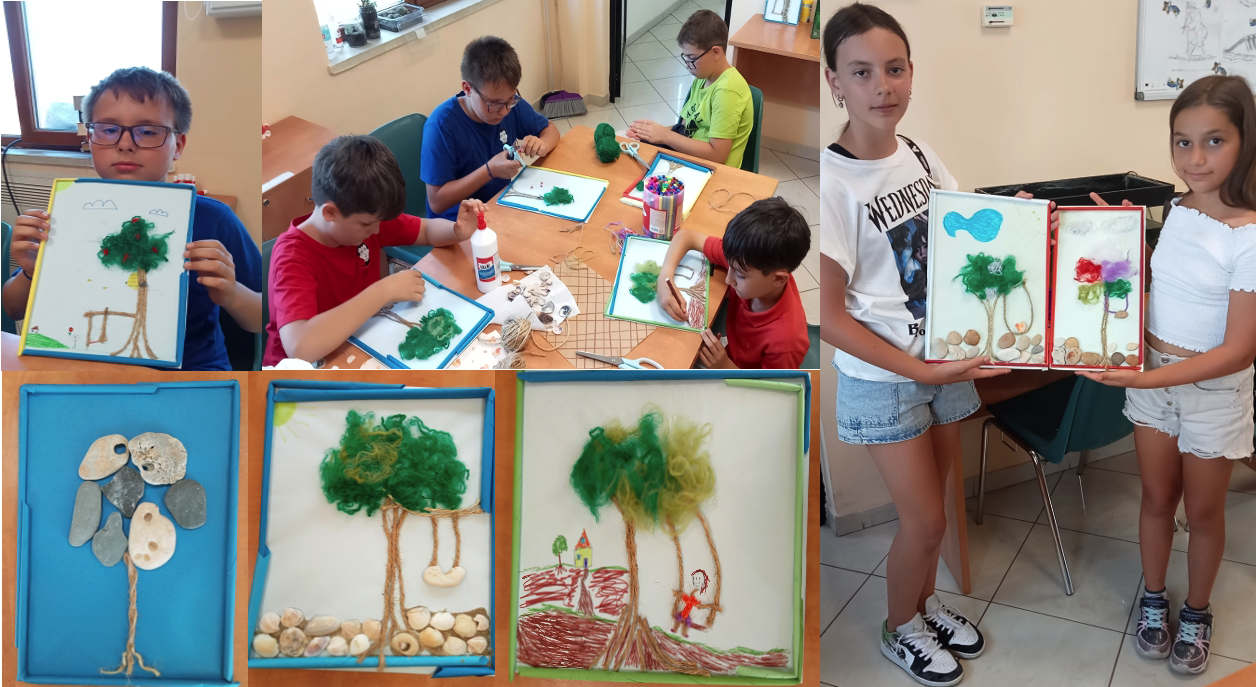
- "Teacher, why aren't we planting trees?"
- "Of course", answered with wisdom and patience Professor Mertoiu, "we're going to plant trees, but first let's plant them in our minds, and see how they look. The mind is like a tree, each branch is a thought, and the better and neater our thoughts are, the more fruitful they are. ".
Thus, the students represented in their mind tree their dreams of play, the animals, the road home, and the clear sky of summer. They also reflected on the fact that ecology starts with the ecology of the mind.
We hope that this may be the most important memory of the summer camp, and that the students' minds will continue to be cultivated with thoughts of friendship, love of knowledge, and love of nature.
Because, just as Emil Racoviță said in the speech he gave when inducted to the Romanian Academy:
To know or not to know, that is the question!
Because not knowing means: superstitions, blind selfishness, wild competition, misunderstandings, enmity, war, famine, ruin.
Knowing means for humanity: thorough organization, rational activity, cooperation, solidarity, peaceful evolution.
To know means for man: to live your time of «being» with contentment and to wait for the moment of «not being» with serenity. 2
As the students' activities planted that seed of "knowing" in each of the participants, so we prepare for new "învățăcei" (learners), as Ion Creangă, one of Racoviță's teachers, liked to call them, to come to new environmental stories in the future.
Meanwhile, the seeds of knowledge need the help of everyone around: if you are parents or teachers who want to participate with us in the further development of these activities, or you want to support other children to be able to participate, we invite you to contact the Foundation Racoviță, or the Foundation Bosco. The sponsorship of the "Racoviță" summer camps can be done through our donations page.
photos:
Carmen Mertoiu, Fundația Giovanni Bosco
text: Oana Marcu, Fundația Racoviță
The books «Spre Sud» (the travel diary of Emil Racoviță) and «My great-grandfather Emil Racoviță» (authors Andreia Petcu, Eugen Berlo) are available at Frontiera Publishing House. The book «Madhouse at the End of the Earth: The Belgica’s Journey into the Dark Antarctic Night» (author Julian Sancton) is available at Amazon. ↩
Emil Racoviță. Romanian Academy, Speeches of Reception, No. LXI, Bucharest 1926, p. 40-41.↩